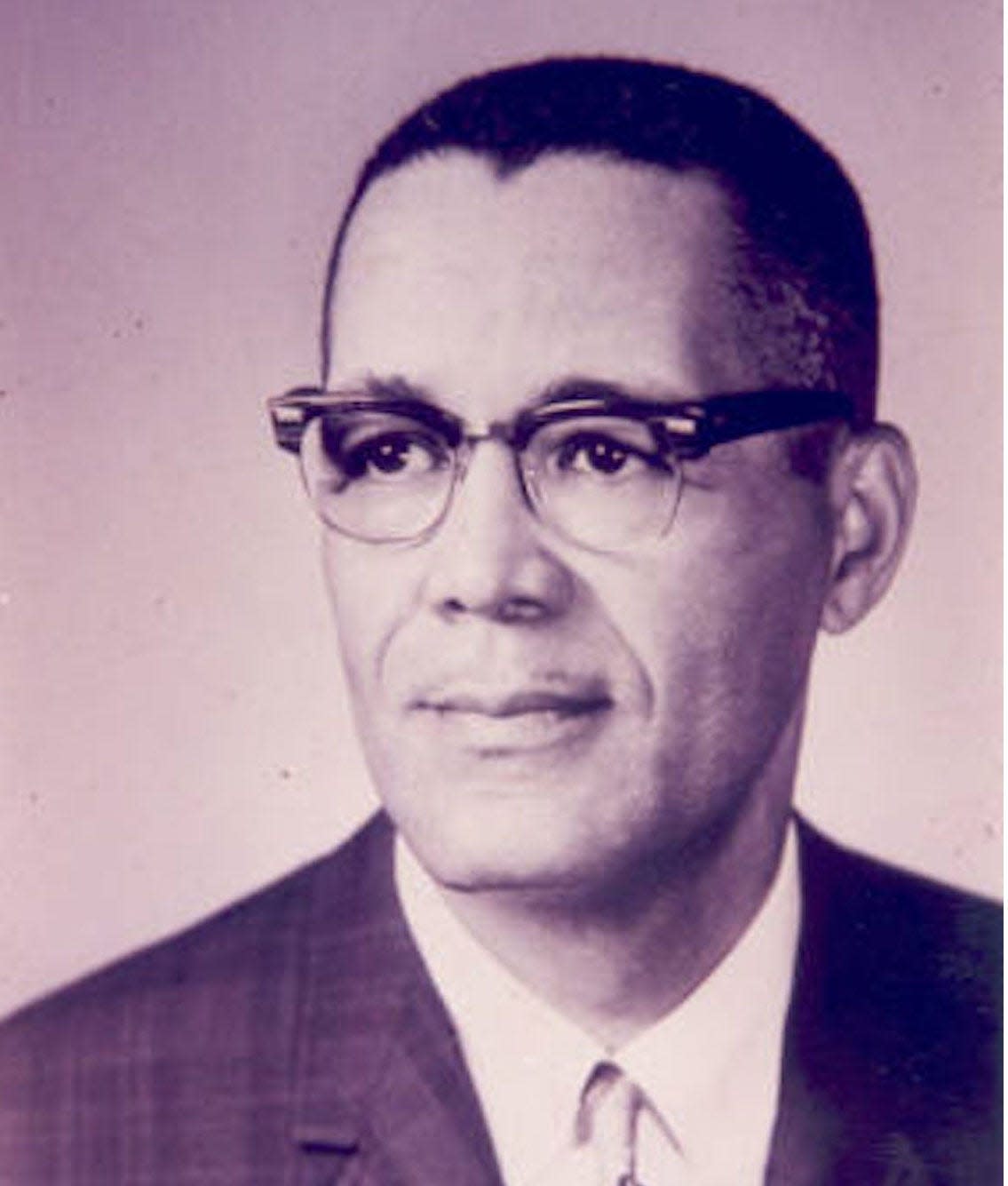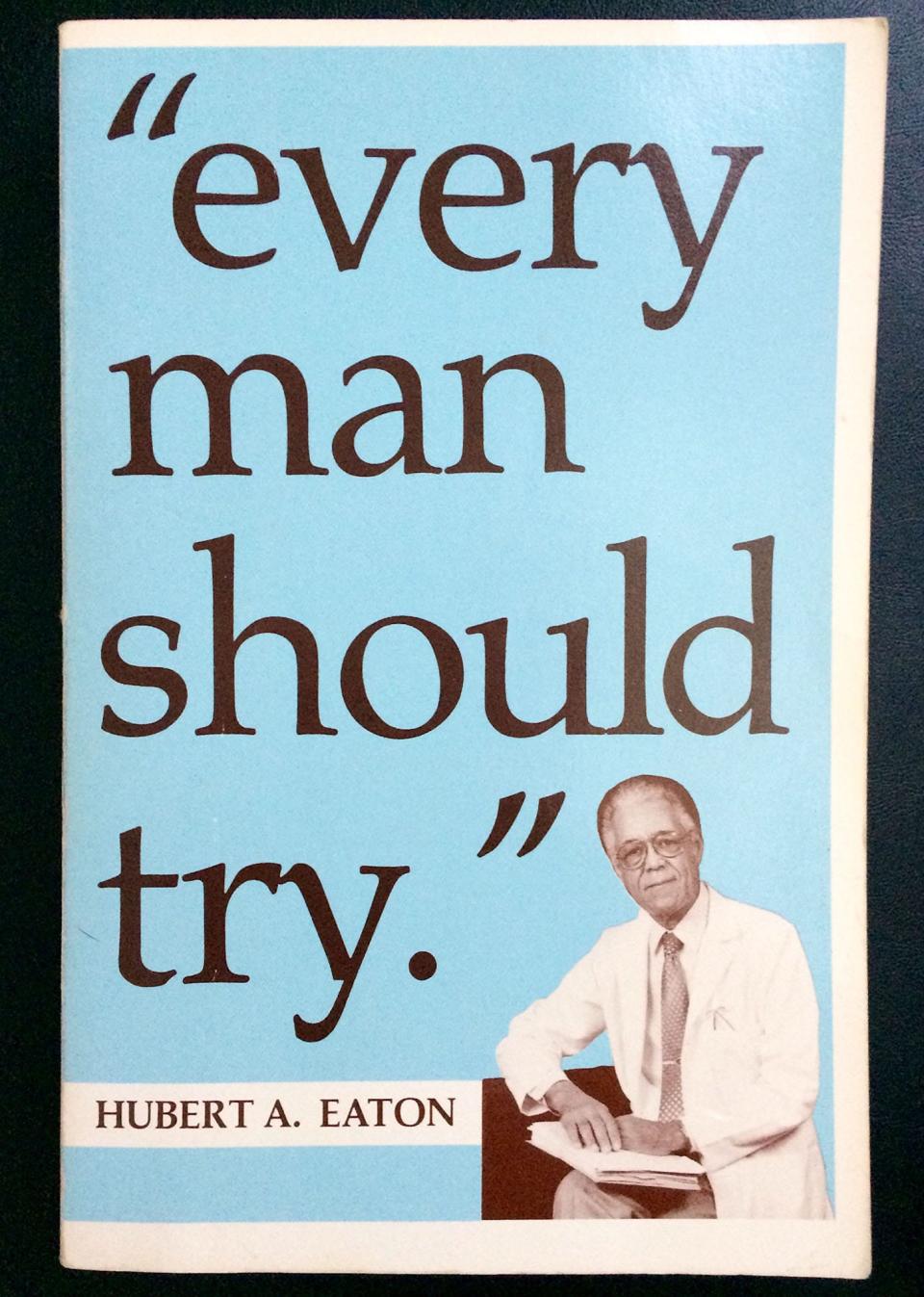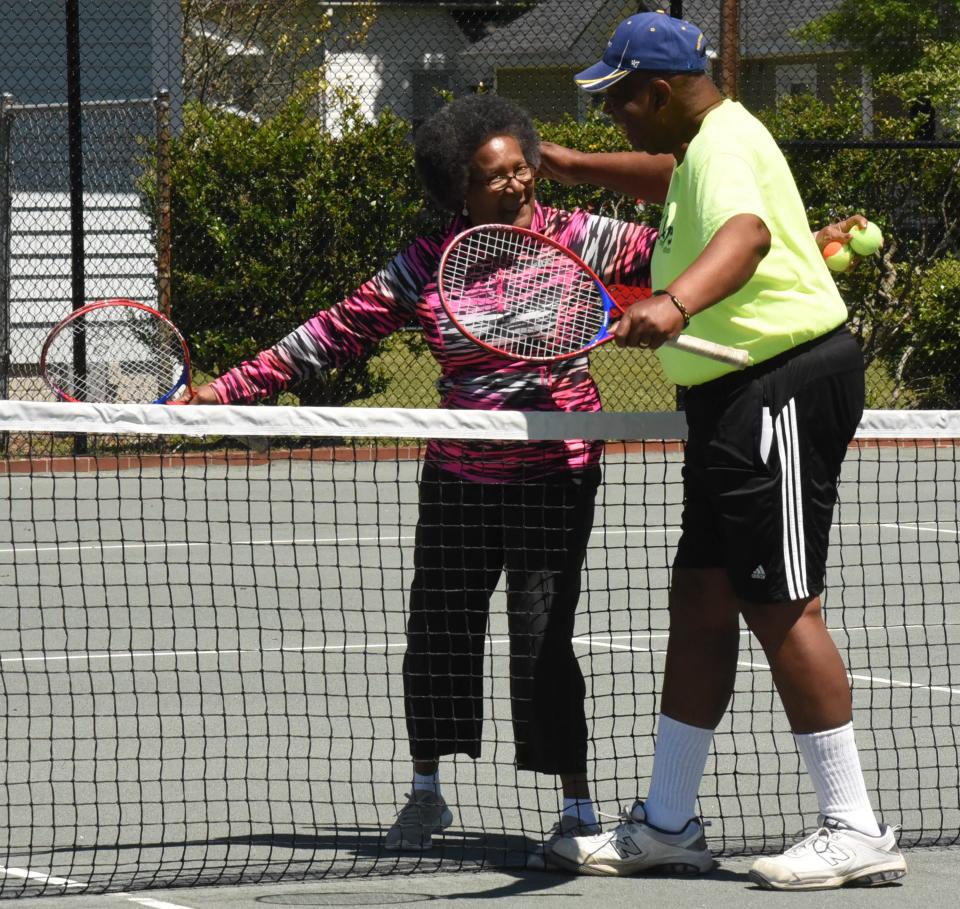What to know about a Wilmington icon whose legacy of school desegregation is in peril

Wilmington physician and civil rights activist Dr. Hubert A. Eaton Sr. died in 1991.
In the 30-plus years since his death, however, Eaton hasn't been forgotten. If anything, his legacy has only grown, even as a key part of it — school desegregation — is in peril.
Last week, a standing-room only crowd in the chambers of the New Hanover County Commission showed up to hear a series of speakers before the unveiling of a historic plaque honoring Eaton outside the New Hanover County Courthouse.
Many of the 100 or more people in attendance raised their hands when Chief New Hanover County Diversity & Equity Officer Linda Thompson asked if Eaton was their doctor. "He delivered me!" one woman had told her earlier, Thompson said.
Here's a look at the man who several speakers called "a giant" last week and whose legacy will be permanently honored with the plaque at Third and Princess streets.
He helped integrate local schools
Speaking last week before the unveiling of his father's plaque, Eaton's son Hubert Eaton Jr. recalled going on house calls with his father as a young child in the late 1940s. He said they'd pass by the old Chestnut Street Elementary School, where Snipes Academy is today, which was well kept and had indoor plumbing. Then, they'd pass an elementary school for Black children in east Wilmington, which was run down and still had outhouses.
The inequity in how New Hanover County Schools were funded was the subject of multiple lawsuits Eaton filed, starting in 1950 — well before the 1954 landmark civil rights case Brown v. Board of Education, in which the Supreme Court said that segregated schools were unconstitutional. Even after Brown, Eaton continued filing lawsuits against New Hanover County Schools, contending the school system was illegally ignoring the law established by the Supreme Court.
New Hanover County Schools were not fully integrated until the early 1970s.
More: From Tree City USA to a World War II Heritage City, here's what Wilmington's titles mean
He worked to ensure equitable treatment at medical facilities
In addition to having a private practice on North Seventh Street, Eaton was on the surgical staff at Wilmington's old, segregated Community Hospital for Blacks.
In 1957, Eaton and other Black doctors sued to force Wilmington's James Walker Memorial Hospital to allow Black doctors on its staff. At the time, Eaton had a darkroom in his home on Orange Street that he used for developing X-rays because he was not allowed to use the facilities at James Walker, and the facilities at Community Hospital were not adequate.
In the 1960s, when New Hanover County began the process to replace James Walker with what is now Novant Health New Hanover Regional Medical Center, Eaton and other doctors sued to make sure the new facility would be open to Black doctors and Black patients, arguing in part that it was unfair to bar Blacks from a facility that their tax dollars went to support.
He trained a Wimbledon champion
Given his other accomplishments, Eaton's history as a tennis champ and coach is arguably one of the least important bullet points on his resume.
At his home on Orange Street in 1946, which had a swimming pool and a tennis court and was sometimes called "Wilmington's Black Country Club," he began training the great Althea Gibson, who would go on to win Wimbledon in 1956, becoming the first Black tennis player to win a Grand Slam title.
Eaton was no slouch as a player himself. According to the Greater Wilmington Sports Hall of Fame, to which he was inducted in 2017, he won the American Tennis Association boys' singles championship in 1933, the CIAA college singles championship in 1936 and, with George Stewart, won the ATA men’s doubles championship in 1946, 1948, 1949 and 1951.
In 1984, Eaton was inducted into the North Carolina Tennis Hall of Fame, and in 2013, with Wilmington native and student Lenny Simpson, he was inducted into the Black Tennis Hall of Fame.

He thought 'Every Man Should Try'
In 1984, Eaton published his autobiography, "Every Man Should Try," which chronicled his years fighting for equal rights for Blacks. According to the African-American Student Project at the University of Michigan, where Eaton was trained as a physician, "He opens his autobiography with the moment that sparked his fight against segregation: being forced to swear on a segregated courtroom Bible in 1947."

His legacy remains
Eaton's home and the tennis court where he trained has been restored and is now the headquarters of One Love Tennis, run by Eaton's protege, Lenny Simpson.
In addition to the plaque in his honor on Third Street, Eaton Elementary School on Gordon Road also bears Eaton's name.
Despite his tireless efforts to ensure equitable treatment for students in New Hanover County Schools, however, a StarNews report from 2022 noted that "if Eaton were alive today, he would see a system much like the one he fought to end."
Many New Hanover County Schools are now effectively segregated, a result of the county school board's "neighborhood schools" policy.
"Perhaps the cruelest irony for Eaton’s life mission is the status of the school named in 1997 to honor his legacy," the StarNews wrote in 2022. "Eaton Elementary ... is 80% white and just 11% Black and Hispanic."
This article originally appeared on Wilmington StarNews: What to know about Wilmington civil rights icon Dr. Hubert Eaton Sr.

